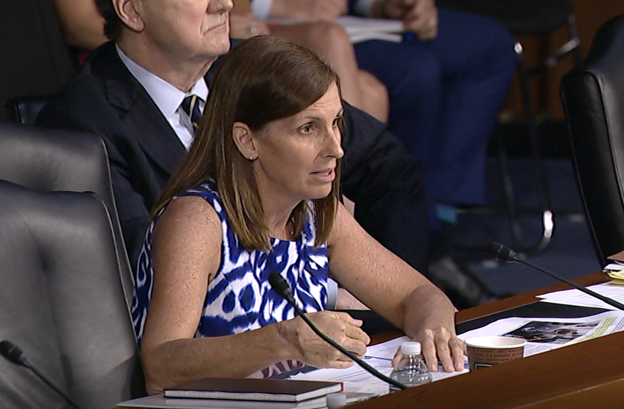Today, U.S. Senator Martha McSally (R-AZ) grilled the head of Facebook’s new cryptocurrency on digital privacy after repeated violations of not only U.S. regulations, but also consumer trust.
During a U.S. Senate Committee on Banking, Housing and Urban Affairs hearing to examine Facebook’s proposed digital currency and data privacy considerations, McSally pointedly questioned David Marcus, the head of Facebook’s subsidiary Calibra, about why Americans should trust a new Facebook product when Facebook’s track record shows that they should not.
“Mr. Marcus, I don’t trust Facebook and it’s because of the repeated violations of your users’ privacy, repeated deceit, and I am not alone,” McSally said. “As you know, in 2011 there was a consent decree with the Federal Trade Commission related to your privacy practices so that’s where it started there with investigative bodies but it hasn’t ended. Even after that consent decree, Facebook is under investigation again and the FTC has approved a fine for about $5 billion just recently because of your repeated violations of your users’ information. For example, without users’ permission, sharing personal profile information with outside software developers, selling that off again, data breaches, allegations that you’ve repeatedly changed users’ privacy settings without notice. The SEC, of course, is also investigating events around the sale of personal information from Facebook. The office of the United States Attorney General has an investigation into unauthorized collection of 1.5 million Facebook users’ email contact databases—on and on and on. There’s allegations of bugs that ‘Oh, sorry we didn’t mean to allow them to download photos.’ I mean it’s one after another after another after another.
“Instead of cleaning up your house, now you’re launching into another business model with Calibra here and you’ve got documents that talk about your privacy commitment for Calibra. In that privacy commitment you say that you won’t be sharing account information or financial data with Facebook or any third-party without customer consent, so how do we know that this isn’t going to change and how do we know that you’re actually going to do that based on your track-record of failing and violating and deceiving in the past?”
Mr. Marcus responded: “That’s a fair question, Senator, and I want to answer it in two parts. The first is that, as you know, we’ve been working really, really hard on addressing these issues—some of them you raised. We have invested incredible resources in election integrity and privacy. Mark [Zuckerberg] has made it his top priority and we will continue to do that until those issues are fully resolved and addressed to satisfaction. On the Libra side, we have designed this network in such a way that Facebook doesn’t and won’t control it or the currency and there will be plenty of competition …”
McSally said: “I don’t want to get into the technical stuff. I’m talking about the trust issue. So you violated privacy in the past as a company, you continue to have issues, you continue to change the privacy rules without informing users, yet you’re launching a new product and you’re claiming that their privacy is going to be protected. So, how are users to know that that’s also not going to change and they’re not going to be violated? That’s what I’m getting at. The core issue here is trust.”




